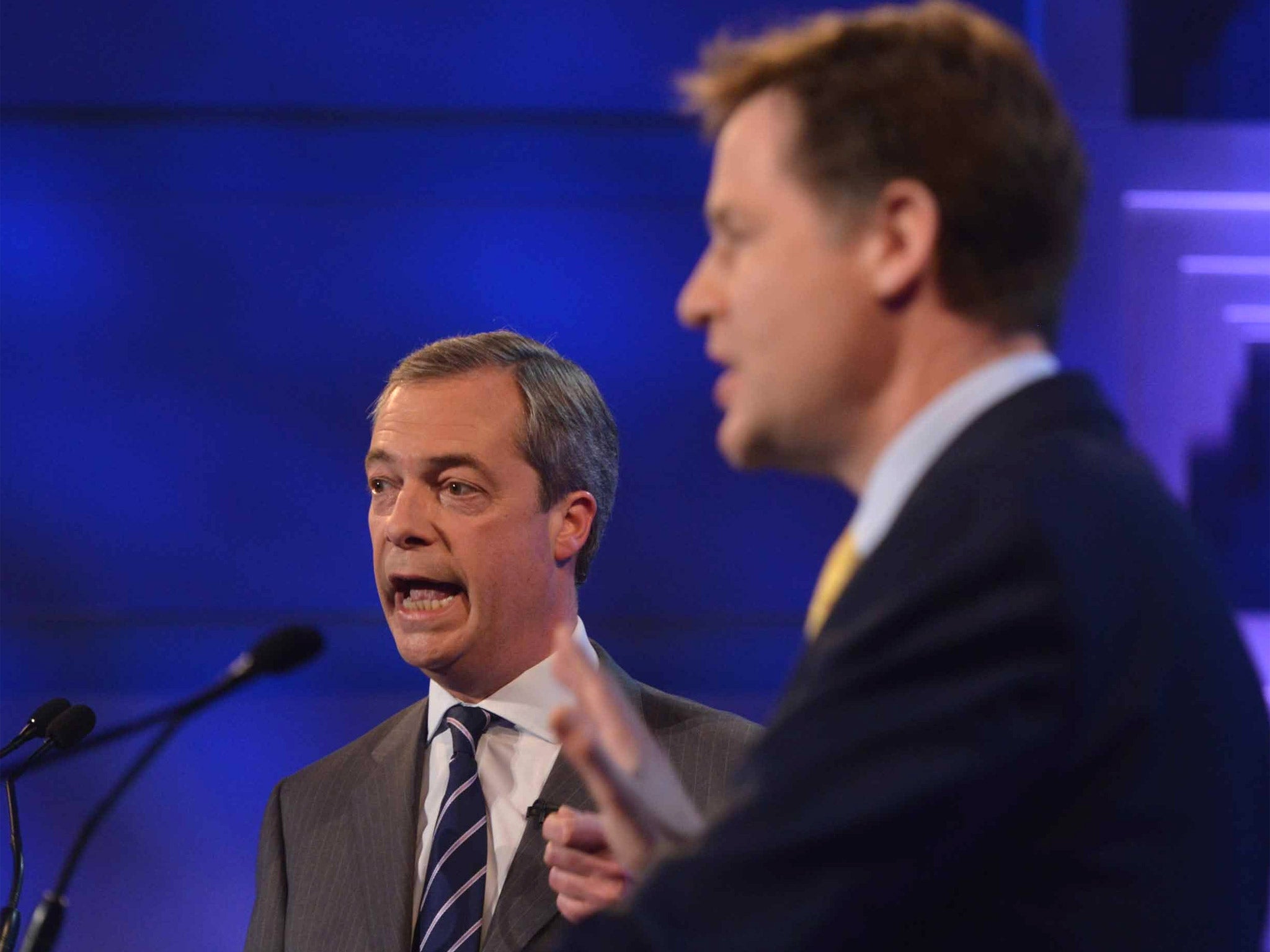Nick Clegg vs Nigel Farage: What does it mean for students?

So who’s afraid of an EU debate? Clearly no one, as it turns out.
While Nick Clegg’s “jokes” left many of us reaching for the revolver, or at least a bag of pennies so we could count how many dropped before the Lib Dem leader’s punchline, many viewers, after watching part two of the televised EU debates, seemed uninterested, other than to comment on the UKIP leader’s new parallel identity, “Nick Farage” courtesy of a cock-up by presenter David Dimbleby.
Indeed, a post-debate analysis of twitter reactions conducted by Demos/Ipsos Mori highlighted that of 68,000 tweets, an overwhelming 72 per cent were about the personalities of the two politicians, with a meagre 22 per cent related to the politics and a further six per cent deemed irrelevant. MPs themselves echoed the public disinterestedness, with one adding that the debates were quite simply, “a sideshow” to real questions of the EU in/out referendum.
However, dismissing the debates as having no importance whatsoever could be rather myopic. The leader of Plaid Cymru, Leanne Wood, highlighted a point for consideration, in that she believed the Welsh were “missed out” when it came to the debates. In fact, several groups were overlooked, and that includes the student population.
Apart from one prepubescent Cleggalike obsequiously enquiring about the situation in Crimea and the EU; and a half-baked question about jobs, there was no real mention of how staying or leaving the EU could affect students not simply confined to the UK, but students from EU member countries as well.
It goes without saying that students are naturally interested in, and passionate about, events in the wider political arena. The more immediate implications for Higher Education institutions and graduate job prospects in light of our relationship with the EU should also be pressing concerns.
The most recent HEFA figures show that there are 73,660 full-time undergraduates from EU countries studying at UK universities. EU students are able to have their tuition fees capped at £9,000 as well as access to the UK loans system. If Britain were to leave the EU, the UK may be unable to offer this cap, and those EU students who were reliant on the loans system would be left out in the cold.
There could be a significant reduction in the financial incentives available for EU students to come to UK universities, and could leave them with no other option than to take their education, and their business, elsewhere.
On the surface, this might be considered advantageous for UK student applications. There might be less competition for an already scarce amount of university places if we were to break from the EU, but on the flip side, the lack of competition could mean lower academic standards.
If we were to make it more difficult for EU students to come here, then we could reasonably expect our participation in Erasmus schemes to be effected simultaneously. Immersing oneself in another country and culture is tremendously rewarding, and an experience which could be made more difficult by opting out of the EU.
Alongside this, many of us will be playing the usual pre-graduation game of dodgeball when it comes to answering the dreaded “Have you got a job?” question. Employment prospects post-university are perhaps the most immediate concern, and whether or not we remain in the EU is of some consequence to this topic.
As it stands, statistics provided by the IPPR show that while adult unemployment has fallen last year by 0.2 per cent, youth unemployment (under 25’) has risen by 0.5 per cent. In a labour climate where youth unemployment is currently nearly four times the adult rate; getting a job and holding on to it is more important than ever for graduates and young people alike.
And if that’s not enough for you, the European Parliament voted yesterday to abolish roaming charges across EU member nations by next year. Just think of all the free selfies you could take…
Join our commenting forum
Join thought-provoking conversations, follow other Independent readers and see their replies
Comments
Bookmark popover
Removed from bookmarks